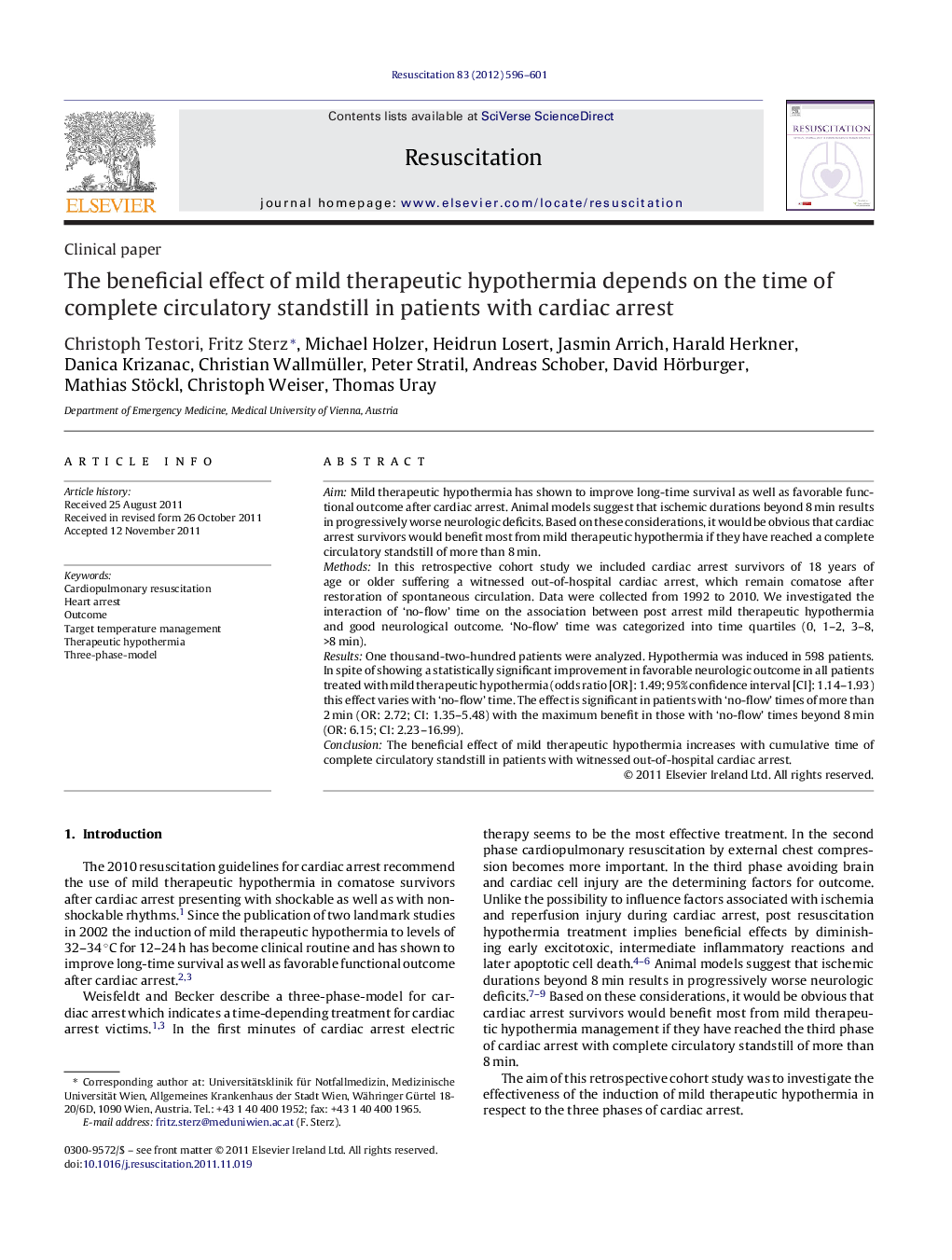| Article ID | Journal | Published Year | Pages | File Type |
|---|---|---|---|---|
| 5999116 | Resuscitation | 2012 | 6 Pages |
AimMild therapeutic hypothermia has shown to improve long-time survival as well as favorable functional outcome after cardiac arrest. Animal models suggest that ischemic durations beyond 8Â min results in progressively worse neurologic deficits. Based on these considerations, it would be obvious that cardiac arrest survivors would benefit most from mild therapeutic hypothermia if they have reached a complete circulatory standstill of more than 8Â min.MethodsIn this retrospective cohort study we included cardiac arrest survivors of 18 years of age or older suffering a witnessed out-of-hospital cardiac arrest, which remain comatose after restoration of spontaneous circulation. Data were collected from 1992 to 2010. We investigated the interaction of 'no-flow' time on the association between post arrest mild therapeutic hypothermia and good neurological outcome. 'No-flow' time was categorized into time quartiles (0, 1-2, 3-8, >8Â min).ResultsOne thousand-two-hundred patients were analyzed. Hypothermia was induced in 598 patients. In spite of showing a statistically significant improvement in favorable neurologic outcome in all patients treated with mild therapeutic hypothermia (odds ratio [OR]: 1.49; 95% confidence interval [CI]: 1.14-1.93) this effect varies with 'no-flow' time. The effect is significant in patients with 'no-flow' times of more than 2Â min (OR: 2.72; CI: 1.35-5.48) with the maximum benefit in those with 'no-flow' times beyond 8Â min (OR: 6.15; CI: 2.23-16.99).ConclusionThe beneficial effect of mild therapeutic hypothermia increases with cumulative time of complete circulatory standstill in patients with witnessed out-of-hospital cardiac arrest.
